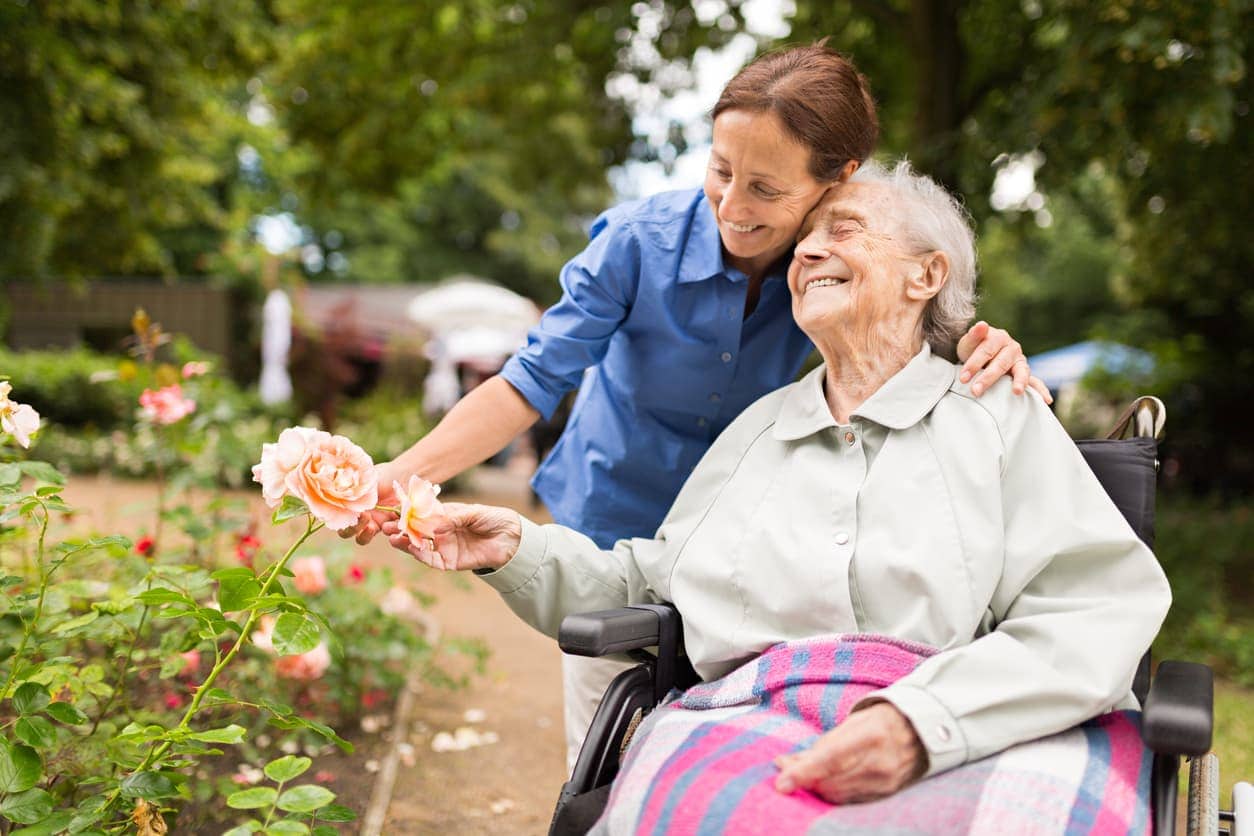
Coming to Terms with Your Loved One’s Need for Memory Care
The diagnosis of a loved one with memory loss usually hits like a ton of bricks even when little signs of the disease are evident. No one wants to hear that diagnosis. Even a conversation about moving a family member to a memory care community can feel like a gut punch coupled with emotional guilt and sadness. The notion of pulling someone you love out of their known daily routine often feels wrong at that moment. It feels like abandonment. It feels like a weak decision. It seems so final.
Acceptance takes education, new understanding and medical expertise. Wrapping our minds around this change with knowledge means we can get back to simply loving them again and honoring our own self-care. The journey is a difficult process but it’s a critical one toward finding the safest, the healthiest, the most loving path for everyone involved.
How Do You Know It’s Time for Memory Care?
According to U.S. News, 5.8 million people in the U.S. have Alzheimer’s disease, the most common form of dementia. They list 5 distinct behaviors that indicate a move to a memory care community like Avalon is truly needed.
- Changes in behavior – Visual evidence of this may be their appearance. Someone who has always been meticulous in their dress style may develop a disheveled appearance or a lack of hygiene. They may have literally forgotten how to bathe or style their hair. Their personality may change. Someone who was always calm and collected may suddenly show signs of aggravation or irritation.
- Confusion and disorientation – This may not seem like a big deal until someone with memory issues becomes confused while driving or may even wander away from the house. Anytime it may imperil physical safety it’s critical to address this with a solution that will keep them and everyone around them safe.
- A decline in physical health – Malnutrition or a change in important medications can quickly impair someone’s physical health. It may mean they forgot to go grocery shopping or forgot how to cook. It may mean they haven’t taken their meds or have actually taken too much.
- A caregiver’s deterioration – Some dementia patients are able to conceal their disease longer when there is a spouse or loved one helping with their care. That extra support has kept them safe, well, and clean. When the caregiver is no longer around or is under care of their own, the one with Alzheimer’s will falter faster.
- Incontinence – When this occurs, caregiving becomes much more difficult for a spouse or family member so they now begin to look for support in a memory care community.
It’s typical for families to seek care for a loved one who is in mid-to-late stages of dementia. Perhaps asking yourself this question can be helpful when making decisions along this journey.
“If I were the person with memory loss, what would I want done for me?”
If you still struggle with guilt and sadness, remember it means you truly care. It doesn’t mean, however, that caregiving is your obligation, especially when there is a real solution with professional caregivers who specialize in dementia care. Providing your loved one with a safe place to live means you care about their safety and comfort, you care about their physical and mental health, and you care about maintaining a loving relationship with them.
Start with Research to Choose the Best Community
According to Alzheimers.net, *there are a several important questions to ask memory care communities you are considering. These questions cover the bases, from the staff’s training to the safety of the facility. Don’t be shy. Come with pen and paper in hand for future reference. Having this information will help you weigh the pros and cons of your options.
1) What level of care does the community provide?
2) What type of training has the staff received?
3) What is the monthly rate for housing and care? What services does that rate include?
4) Are rooms private or semi-private? How do prices vary for each?
5) What level of personal assistance can residents expect?
6) What is the policy for handling medical emergencies?
7) How is the community secured?
8) What meals are provided? Are special dietary requests, such as kosher meals, accommodated?
9) How often are housekeeping and laundry service provided?
10) What programs (exercise, physical therapy, social and other activities) does the facility offer?
11) Does the facility accommodate special care needs, such as diabetic care, mobility issues, physical aggressiveness or wandering?
12) Are residents grouped by cognitive level?
13) What is the ratio of staff to residents during the day/night?
14) How does the facility communicate with families about a resident’s well-being?
15) What is the discharge policy?
* Resource: Alzheimers.net
When family members are making care decisions for a loved one living far away it’s worth noting where a community is located and perhaps consider travel costs.
Reach Out for Support
You don’t have to deal with the sadness and guilt on your own. There are countless support groups you can get connected with to meet people dealing with the same thing. Seek out a therapist, or talk to other caregivers, friends and family members who are also impacted by Alzheimer’s. Other small things you can do to come to terms with your loved ones need for memory care include, writing in a journal and reading books dedicated to the issue.
Overall, placing your loved one in the hands of memory care specialists like those at Avalon will greatly benefit them and you. A daily routine, structure and stimulation from other residents and staff will only help them. It also gives you a chance to take care of yourself and do the important things you have been neglecting while caring for your loved one. A memory care community still gives you plenty of opportunity to be a part of your loved one’s everyday life, while also giving you the chance to practice self-care as well.
See More Articles
-
Visiting Your Aging Parent With Memory Loss at Avalon Memory Care
As a loving son or daughter, you naturally want the best of care for your senior parent. The compassionate assisted living caregivers at Avalon Memory Care want you to know that while your parent is living with us, he or she will receive nothing less than respectful, loving care within our comfortable, safe, and fully-staffed
-
Celebrating New Year’s Day in Memory Care
Families often find that celebrations with their loved ones in memory care are easier when they embrace new traditions. For instance, it may not be practical to expect your loved one to stay up until midnight on New Year’s Eve. Instead, consider throwing a New Year’s Day celebration, complete with a countdown to the first
-
Understanding Parkinson’s Disease and Dementia
Parkinson’s disease is an incurable neurological disorder, with progressively worsening complications. Perhaps the most well-known symptom of Parkinson’s is a hand tremor, but it can also cause speech changes, muscle rigidity, and impaired posture. Eventually, as the disease progresses, more than half of all individuals with Parkinson’s will require dementia care. This particular type of
Testimonials
Downloadable Resources
We Are Avalon
Discover the heart of our community; download ‘We Are Avalon’ to get to know our dedicated team and our commitment to providing a warm, family-like environment.
Transitional Care Guide
If you’re considering a transition, we’re here to help; download our Transitional Care Guide for compassionate guidance through each step of the process.
Schedule a Tour
Visit one of our 30+ campuses and experience our unique approach to memory care.












